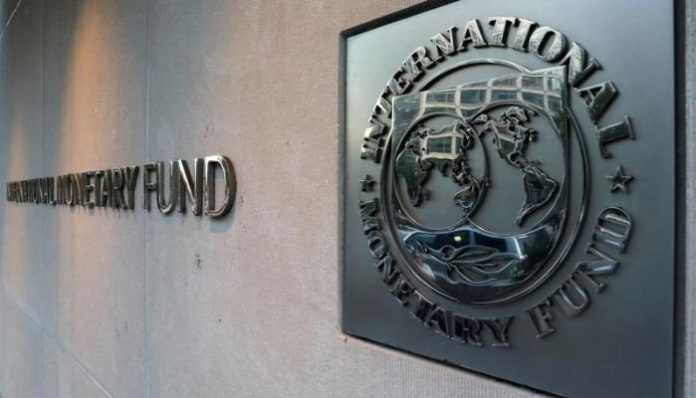KARACHI: Pakistan and the IMF are likely to go above and beyond to complete the seventh review under the bailout programme, the State Bank of Pakistan (SBP) chief was reported as saying by Monday, implying that the ongoing talks could last longer than planned to cover the budgetary procedure.
“Talks may continue beyond May 25 for a few more days, but the IMF will hopefully see a positive statement from the Fund before they extend,” Dr Murtaza Saeed, acting governor of the SBP, told a virtual brief from Doha. “Budget preparation is part of the current review talks, and it can take some more time to finalise.”
Last Wednesday, Pakistan and the IMF began long-awaited talks to conclude a review that, if successful, will unlock approximately $900 million in the seventh tranche.
Miftah Ismail, Pakistan’s finance minister, arrived in Doha on Monday to continue talks with the IMF. Pakistan has already asked the IMF to increase the size and duration of its $6 billion programme during a meeting with IMF officials in Washington last month.
But the thorny issue of billions of rupees’ worth of fuel subsidies, announced by former prime minister Imran Khan and continued by incumbent Prime Minister Shehbaz Sharif, could jeopardise the loan revival talks.
Dr Saeed stated that the government would look into various options for withdrawing or phasing out fuel subsidies. “In the new fiscal year, we see the withdrawal of fuel subsidies… “Various options are under discussion to withdraw it,” he said.
But Finance Minister Miftah Ismail had ruled out the reversal of fuel and power subsidies, which are politically sensitive for the new government, ahead of his talks with the IMF officials. “The nation can’t afford to raise fuel costs and will try and convince the IMF to offer financing without ending subsidies on gasoline and diesel,” Ismail told reporters in Karachi.
“Prime Minister Shehbaz Sharif and [party president] Nawaz Sharif have out-rightly refused to increase the price of fuel,” said the finance minister. Ismail said he would sign an agreement with the IMF in the next two days and “won’t come back without doing it”.
Finance Minister Miftah Ismail has once again said the government doesn’t plan to increase the prices of petroleum products. However, the minister hinted at an increase in the SBP interest rate before it was announced later in the day.
Speaking during a media talk at the Karachi airport on Monday, Miftah said that former finance minister Shaukat Tarin had promised the IMF that the then government would not offer subsidies on petroleum products, instead, it would impose a Rs30 tax per litre. He said this promise was made over a written agreement, reported Geo News.
Miftah said that the subsidy on fuel has to be abolished and a tax of Rs30 per litre has to be levied as per the promise made by Imran Khan and Tarin. “We have to pay the price of the promises made by the former government,” he lamented, adding that the government will have to increase the prices of diesel by Rs150 and petrol by Rs100 following the formula of Imran and Tarin.
Referring to Prime Minister Shehbaz Sharif’s observation that the nation cannot bear the burden of a hike in oil prices, Miftah said that he would try to convince the IMF that the government can’t raise oil prices immediately as the nation cannot afford it and should be given some time. He said that the government has been granting the subsidy and it will continue.
Miftah went on to say that he finds Tarin’s statement ridiculous that his government left funds for the subsidy. “I swear that I met the finance secretary two days before taking charge as the finance minister, and the presentation he gave showed a deficit worth Rs13,000 billion,” the finance minister said.
He asked the former government to tell him where they had left the money. “They have not left any money, instead they have violated the agreement with the IMF,” he added.
Continuing his criticism, Miftah said that the PTI-led government showed 6% growth, but the IMF says that Pakistan’s economy is running fast and it should be slowed down. “Now, we might increase the interest rate as well.”
He said that Imran Khan took a loan of Rs20,000 billion, which is 80% of the entire amount of loans taken in 71 years of Pakistan’s history. He further stated that former planning and development minister Asad Umar caused Pakistan a loss of 9.1%, which was a record loss in 52 years.
“Pakistan exported wheat when we (PMLN) left the government, but today the country is importing wheat,” Miftah said. He said that, he, as the finance minister of Pakistan, is forced to go to Doha for parleys due to Imran Khan’s call for a long march.
Miftah promised to return within two days after reaching an agreement with the IMF, but he will not agree to the conditions Tarin did. He said that he would ask the fund to give its conditions in writing, which he would show to the prime minister. He hoped good news would come from the IMF regarding loan deals.
A Pakistani delegation is holding talks with the IMF in Qatar, seeking the revival of the stalled $6 billion loan programme. Miftah is travelling to Doha to participate in the final round of negotiations.
The government is expected to withdraw energy subsidies and roll back unfunded subsidies to the oil and power sectors. According to reports, Pakistani authorities would make every effort to urge the IMF’s review mission that it should lower the cost of the inflation burden that will impact the population, and may ask for a phased-in approach to subsidy reversal, particularly on petroleum goods.

















